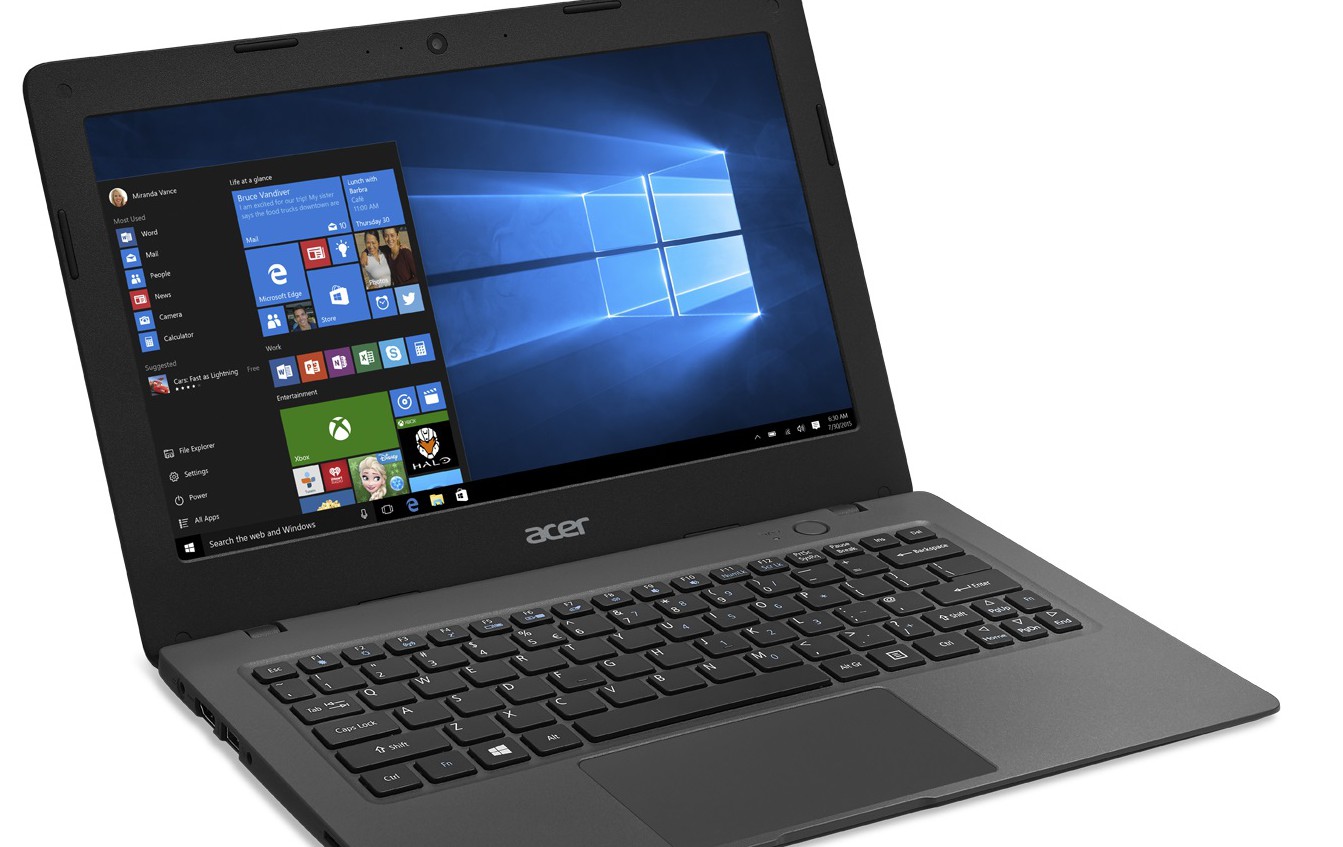
Acer Aspire One Cloudbook is a Windows 10-powered Chromebook killer
When Google's Chromebooks came onto the retail scene, consumers were dubious, and rightfully so. After all, for the most part, the operating system appeared to be nothing more than a web browser. While Chrome OS is actually a full-fledged Linux distribution, the focus is on the web browser, so consumers aren't far off -- perception is everything.
While Chromebooks can be a great option for people with limited computing needs, Windows 10 offers so many more possibilities. Despite limitations, what kept Chromebooks semi-popular, was the low cost. Unfortunately for Google, that benefit is short-lived. Today, Acer announces its Aspire One Cloudbook line. With super-low prices and Windows 10 Home, these are sure to be wildly popular; consumers may forget about Chromebooks altogether.
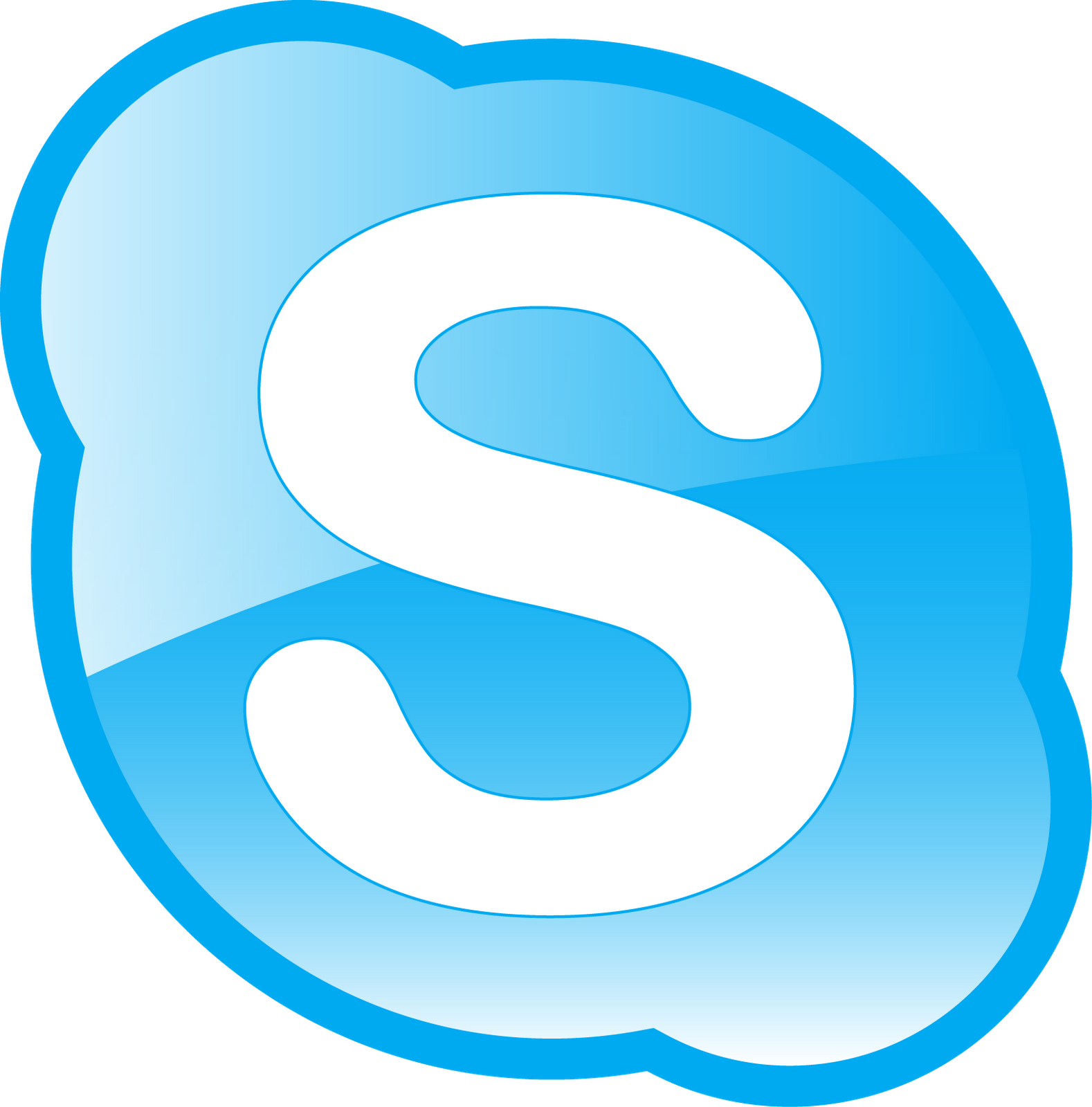
Microsoft's Skype for Web (Beta) available worldwide, including Linux and Chromebooks
Skype is one of the most recognizable communication services in the world. Unfortunately, Microsoft has not yet perfected it; there is plenty of room for improvement. The company is arguably mishandling Skype, by killing the much maligned Modern UI version rather than fixing it.
Not all news about Skype is bad, however; last week, Microsoft announced that it was opening the web beta to all in the US and UK -- awesome news. Today, the company makes this announcement even better, by expanding it globally, including Linux distributions and Chrome OS (which is technically a Linux distro) for instant messaging.
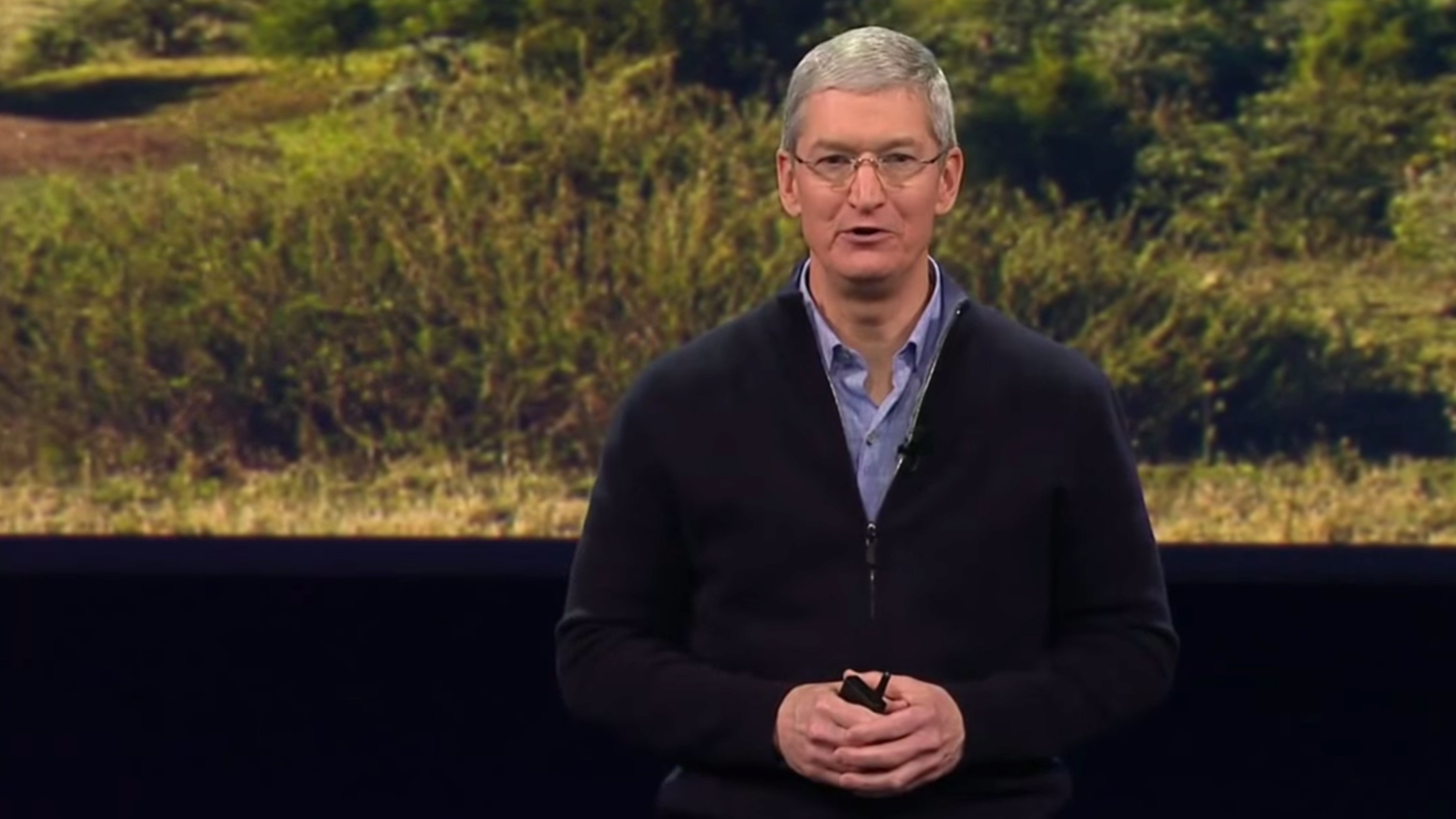
Tim Cook is an opportunist
Nine years ago, a NPR interviewer asked me about Google and other U.S. companies censoring search results in China. The question was one of morality -- to which I gave answer she didn't expect. That response, or my recollection of it, is appropriate for rather ridiculous and self-serving statements that Apple CEO Tim Cook reportedly made two days ago.
"We believe that people have a fundamental right to privacy", Cook said, Matthew Panzarino reports for TechCrunch. "The American people demand it, the constitution demands it, morality demands it". Oh? What is moral? The answer I gave NPR in 2006 applies: There is no moral high ground in business. The high ground is quagmire, because all public companies -- Apple surely among them -- share a single, moral objective: Make profits for stockholders. Plain, pure, and simple.
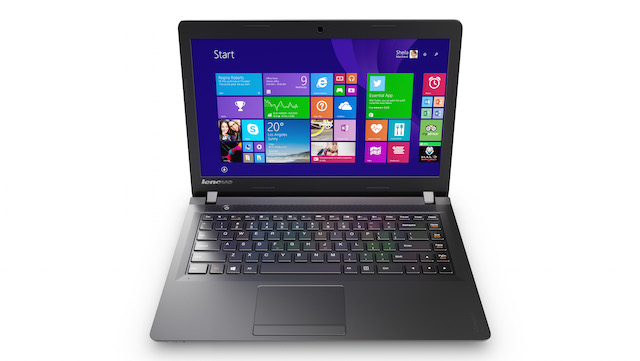
Lenovo unveils another Chromebook competitor -- $249 Windows 8.1 laptop
With PC shipments continuing on a downward slope, manufacturers are finding new ways to attract consumers. In the high-end segment, it is all about specs: high-resolution screens, lots of battery life, powerful processors and so on. But, at the other end of the spectrum, the focus is on value for money -- to a certain extent, it is about cramming as many nice things as possible into a package that does not break the bank.
Chromebooks are probably the offerings that best cater to this audience's needs, assuming folks can live without Windows on their new machines. If that is not the case, there are a couple of interesting options on the PC side, one of which is Lenovo's new ideapad 100 line.
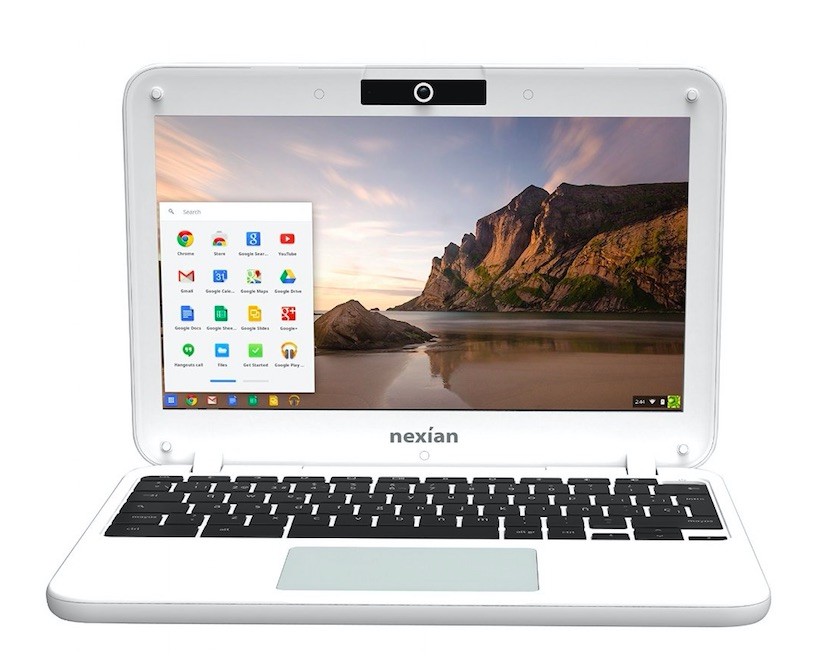
Google launches $200 Chromebooks by Xolo and Nexian in India
At an ongoing event in New Delhi, Google launches two new Chromebook models from Xolo and Nexian. Aimed at the education sector, both the Chromebooks are priced at Rs 12,999 ($200), and go on sale starting today.
The Xolo Chromebook sports an 11.6-inch display of 1366x768 pixels resolution packed in a glossy plastic body. It is powered by a quad-core Rockchip Cortex A17 processor coupled with 2GB RAM, and 16GB of internal storage. The notebook flaunts a decent enough keyboard with tactile feedback.

My definition of 'modern' computing
Late yesterday I posted my review of Chromebook Pixel LS, which Google released in early March. The write-up is purposely rah-rah to impose the importance of embracing contextual cloud computing and to shakeup preconceptions about Macs being the tools of the creative elite. I also call "dumb" developers who may receive free Pixels during Google I/O later this month only to then sell them online.
One reader comment, from SmallSherm caught my attention, for accusing me of calling him (or her) stupid and for insulting other readers. After writing my response, I wondered how few people would ever see the interaction, which I regard as being quite valuable. So in the interest of fostering further discussion, I present our two comments for your Tuesday thought train.
Chromebook Pixel LS is nearly perfect [Review]
Mark the date with an alarm. Around May 28, 2015, sellers likely will fill eBay and Craigslist with spanking new Chromebook Pixels, available for bargain prices—if anything less than $999 or $1,299 could be considered a deal. Google's developer conference commences that day, when I expect many attendees will receive and quickly dispatch shiny, new laptops. Big G gave away the pricey Pixel two years ago, and it's good guess will do so again. Smart developers will keep the machines; many will not. Dumb move, but who am I to judge, eh? Pixel rests at the precipice of future computing, for those open-minded enough to welcome it. They are few.
If you are among those who get the Chromebook concept, who thinks about purchasing the laptop, but waffles indecision, watch for short-term selling prices that could meet what your sensibilities and spending budget can tolerate. It's good background for me to finally review the higher-end of the two costliest Chromebook configurations. My primer can help you decide whether or not to bother, either for full price now or for the chance of less later. Why wait? I wouldn't and didn't. I received my Pixel in March, on Friday the 13th, ordered two days earlier from Google. I use no other computer. It's more than my primary PC and could be yours, too.
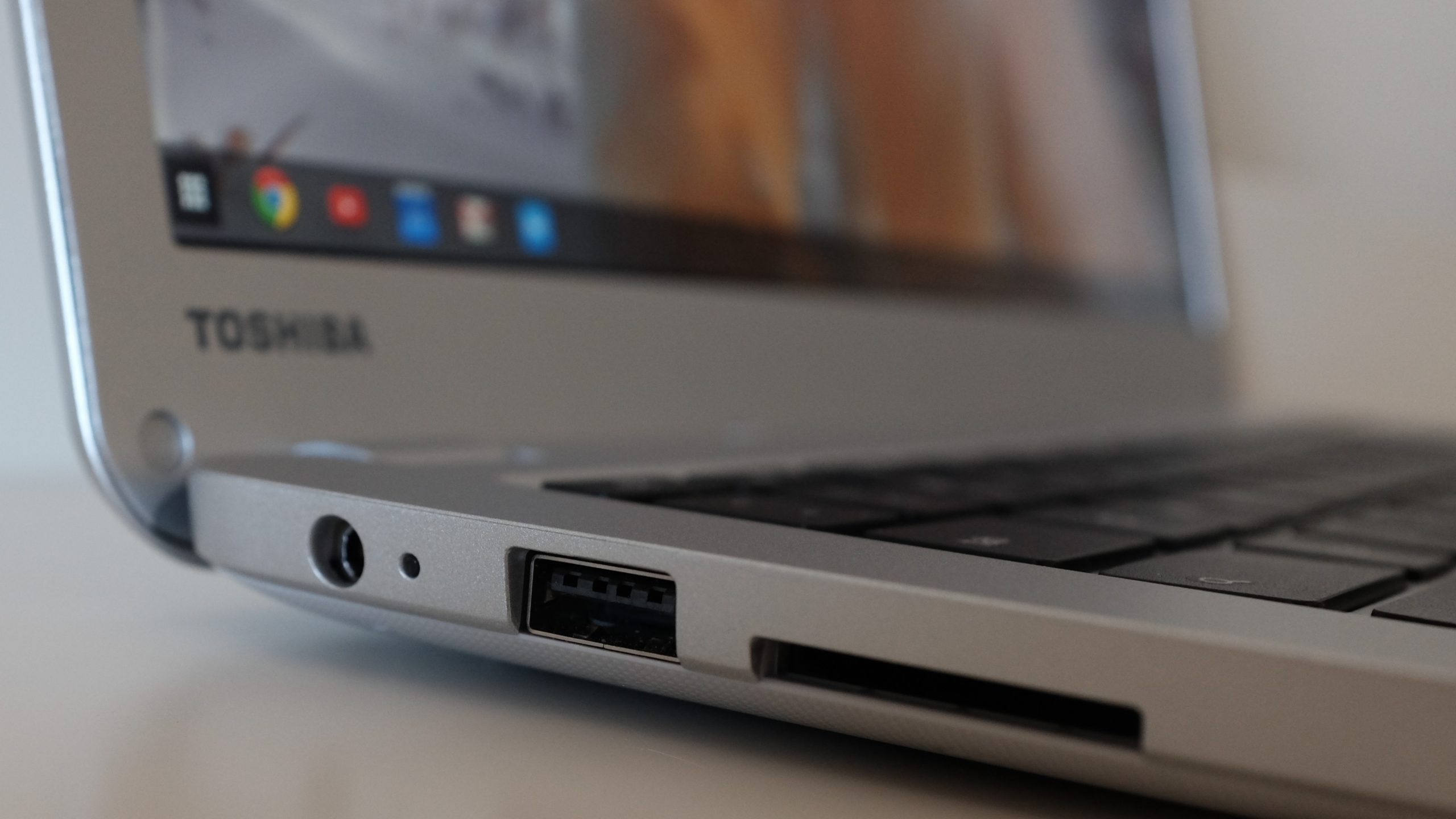
Euro currency crisis raises Chromebook's sales appeal
What if you manufactured a low-cost, underpowered laptop -- and the configuration suddenly turned into a massive marketing advantage? That may well be the opportunity ahead for Google and its Chromebook OEM partners; if they seize the opportunity.
As we reported Wednesday, Gartner predicts that currency devaluation will compel major computer manufacturers to raise prices by as much as 10 percent, particularly across Europe and in Japan. Higher prices mean more customers will do with leaner configurations, and choose sub-$500 systems. Meanwhile, PC makers will give purchasers less for more money, cutting back features to preserve margins while shifting sales priorities to markets where currencies are more buoyant. What is Chromebook already? A lean, low-cost PC in that price category but better optimized for hardware.
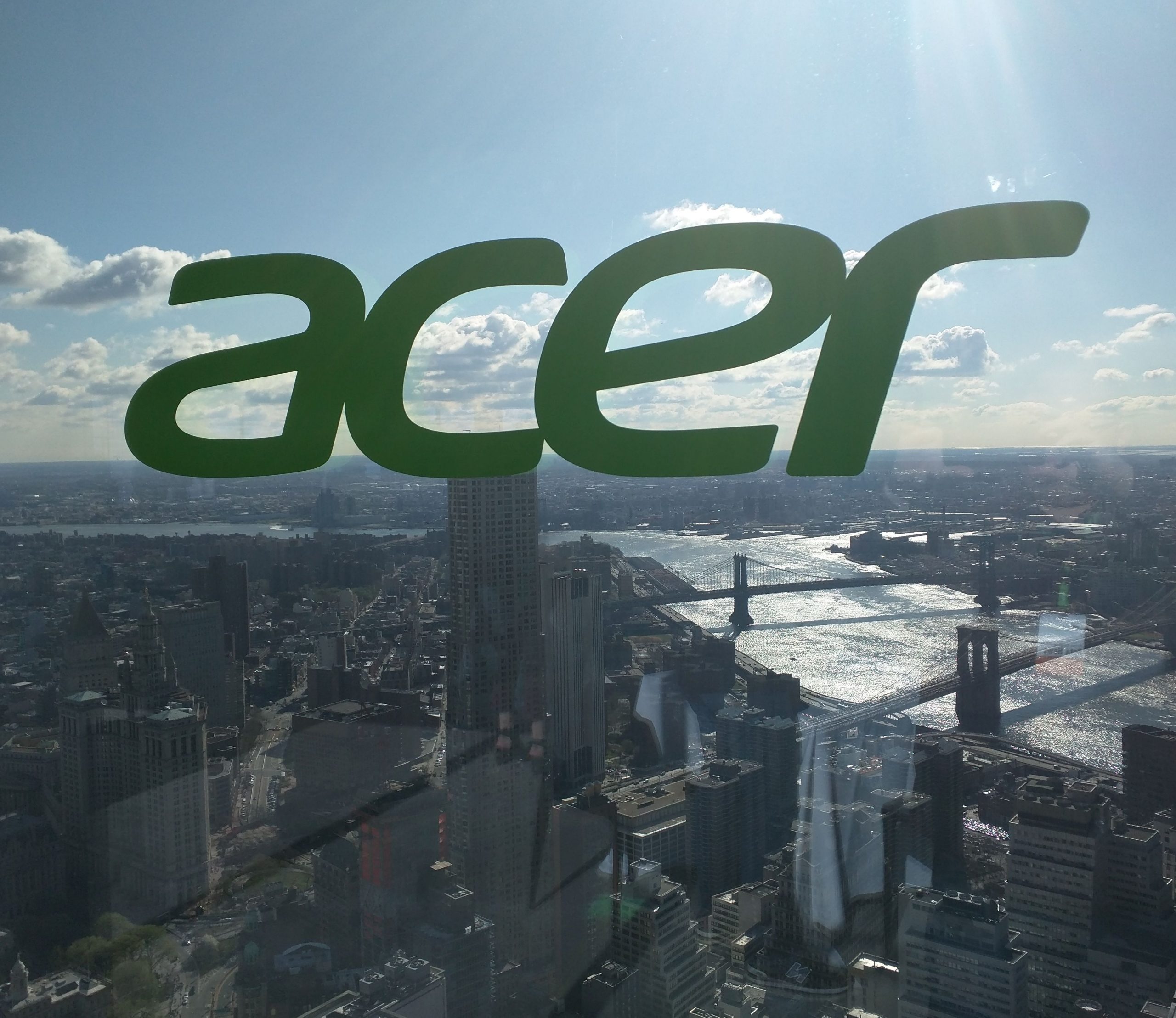
Acer unveils new products -- Windows, Chromebooks, Android devices, and Predator gaming
Acer held a massive press conference today in Manhattan to unveil its new product lineup. BetaNews was there, live, at 4 World Trade Center. The views from the 60-something-th floor were magnificent, but even more awe-inspiring to a tech nerd like me, were the Acer products.
Acer is one of my favorite manufacturers because it focuses on value. Not only are the company's computers beautiful and powerful, but affordable too. While the company kept its focus on the affordable segment with Windows, Chromebooks and Android products, it also introduced its new Predator gaming computers. The star of the show? A small gaming-tablet running Google's mobile OS.

Before our buying polls close, please answer: Will you buy Apple Watch or Chromebook Pixel?
If you haven't responded to either of our most-recent buying polls—Apple Watch and Chromebook Pixel—it's not too late. Preorders for the timepiece start April 10. The laptop is available now, but with long-wait ship times. I purchased the higher-end Pixel, which review is underway. Whether or not one of our writers will test the smartwatch is uncertain.
Polls of this nature are meant to gauge what a specific audience, BetaNews readers, plan to do. Often what respondents would like to buy isn't what they do. For lots of reasons: Budget; spousal or partner objections; availability; competitive pricing; early product reviews; and more. Results better reflect your intentions as the sample size increases. So, please, take a few seconds to answer each poll, if you haven't already.

Chromebook self-browsing is for REAL
Google got me. Not because I didn't get the joke but for how far it actually goes. Perhaps you saw the April 1st post, "Re-rethinking computing", which introduces the project from a "rogue team of engineers...Today, we’re excited to announce a way to make your Chromebook self-browsing". Of course, it's an April Fools gag.
I first saw the post on my Nexus 9 tablet while exercising on the stationary bike. Later, thinking to post a quickie to Google+, I pulled up the URL from synced History on Chromebook Pixel LS. On the N9, I had clicked the post's last link, which did nothing special but when opened on the Pixel took me to the Chrome Web Store with option to install the self-browsing extension. Now that was unexpected. What to do, what to do?
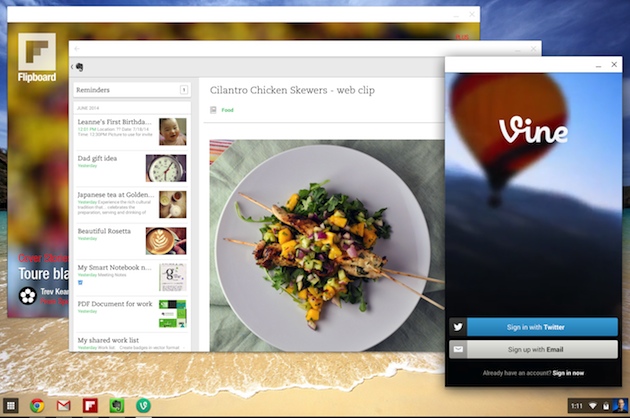
More Android apps coming to Chromebook as Google opens ARC program to all developers
Last year Google introduced support for Android apps on its Chromebook lineup. Since the announcement, we have seen several popular apps arrive at the Chrome Web Store, including Duolingo, Vine, and Flipboard, but the number of such ported apps has been pretty low so far. In an effort to lure in more uber-apps like VLC and others to Chrome OS, the company announces at an event, that it is opening the ARC program -- previously only accessible to select firms -- to all developers. The move will foster the growth of apps at the Chrome Web Store.
The Mountain View-based technology company last year at its developer conference I/O introduced support for Android apps on Chrome OS-powered laptops. The company had showcased a native client extension called “App Runtime for Chrome (ARC)” that runs Android apps on a Chrome OS-powered notebook almost natively through a sandboxed Dalvik VM.
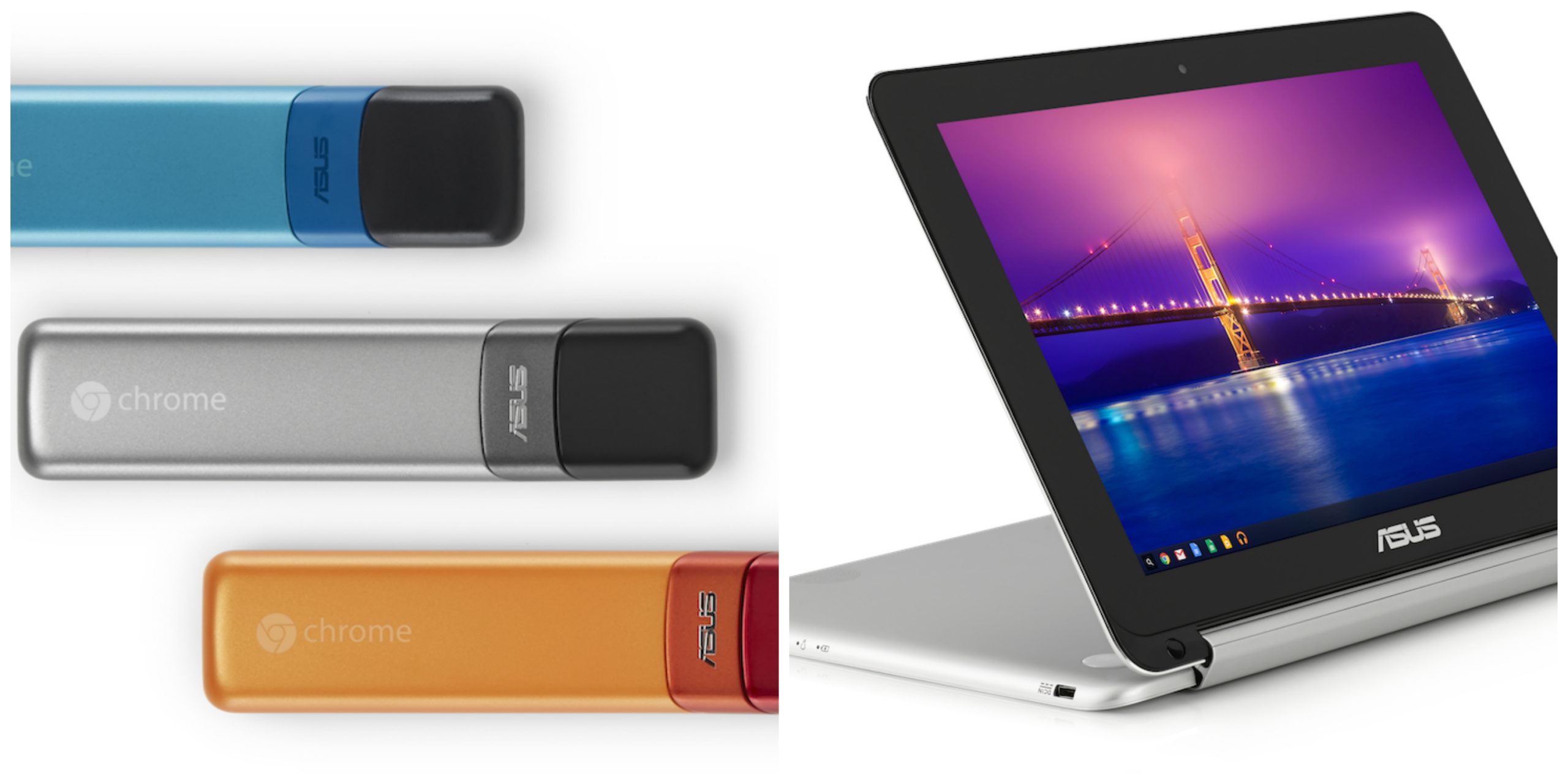
Chromebook reaches a new low
If my calendar showed April Fools' Day instead of March 31st, I would think the big Google announcement was a joke: $149 Chromebooks, with one model available from Walmart? I know some of these laptops sell for $199. But $50 less and models from Haier and Hisense?
Meanwhile, ASUS will, in summer, start selling something for even less: Chromebit, a $100 candy-bar size carry-all computer. Plug it into a HDMI-compatible display (like your TV), and your Chromie lifestyle is even-more mobile. The company also will release Chromebook Flip, a tablet-convertible wannabe, sooner. Someone tell me: This isn't a Foolie prank?
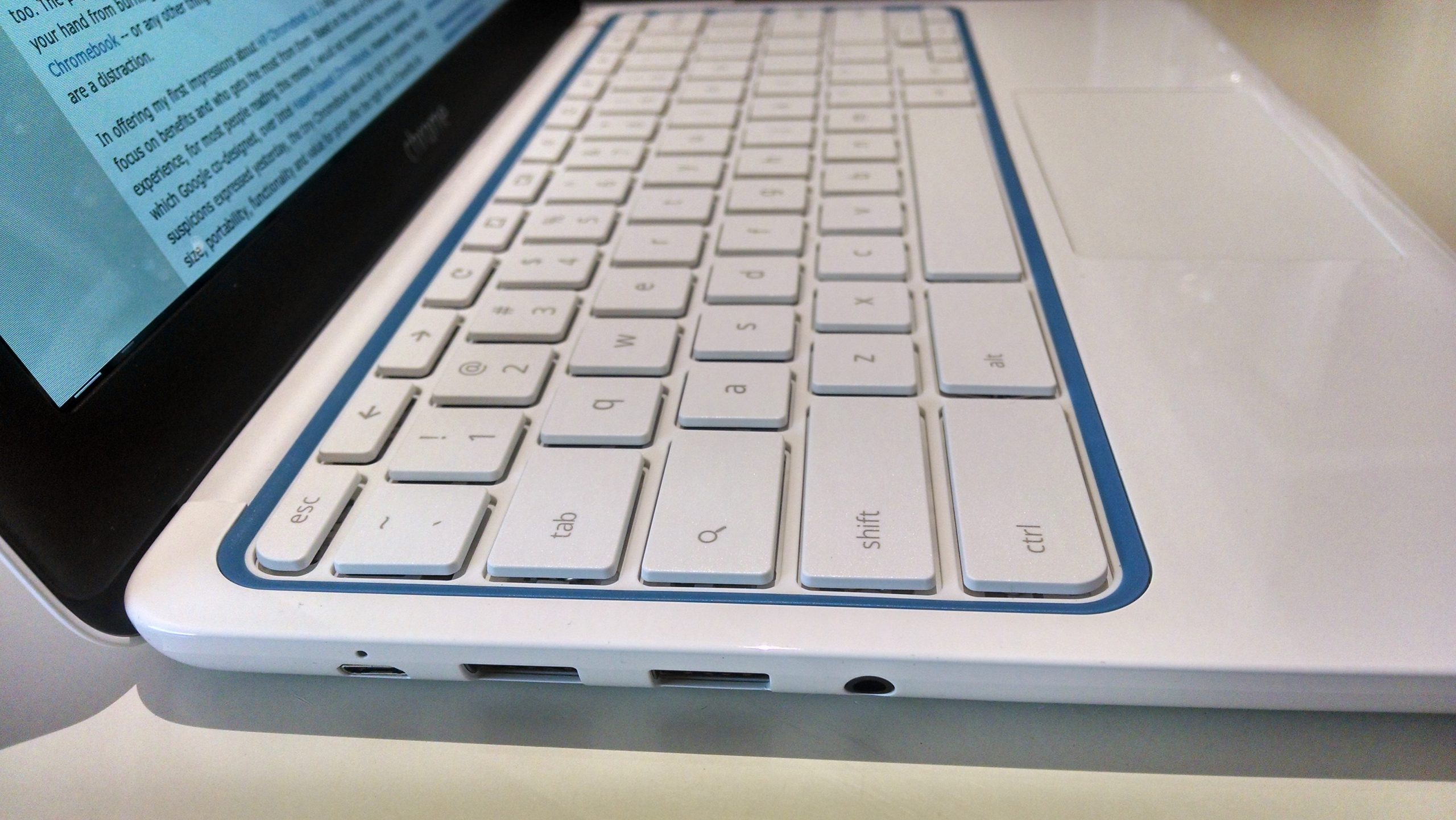
Using a Chromebook -- one year later, and still happy
Last year I wrote about my big move to Google's computer operating system, Chrome OS. At the time my plan was simple -- use a Chromebook for the summer since I work from my porch and wanted something light and small to move around with me. The 15.7 inch Windows laptop wasn't going to cut it and, for obvious reasons, I wasn't moving a desktop outside, especially with a porch that seems to face the rain in every summer storm.
Though the time of my move hadn't occurred to me, the subject came up today in our newsroom. Joe Wilcox urged me to write about my experience, while my colleague Brian Fagioli tried mightily hard to get me to change to a new Chromebook. He called my HP 11 underpowered and implored I get the new Toshiba. Throwing money at a problem I don't have is not in my DNA. What I have works fine and I see no current reason for unnecessary expenses.
Will you buy Chromebook Pixel 2015?
Because some BetaNews readers think Chromebook is a joke, I realized the necessity of getting out our Pixel buying poll before April Fools' Day. So here we are. Google released the second-generation Chromebook Pixel on March 11. The high-end laptop costs less than its predecessor (one model for under $1,000), but many potential buyers will question—and they should—the wisdom spending so much on a computer with browser user interface meant to be mostly Internet-connected.
Chromebook Pixel isn't for everyone—probably not most people. But our readers aren't most people. Many of you live on technology's cutting edge, and some bleed because of it. The laptop could be for you, and it most certainly is for me. I bought the high-end LS model on launch day and took delivery on Friday the 13th. I will have much good to report in my forthcoming review. But what works for me may not for you. So let's look more closely at the computer.
